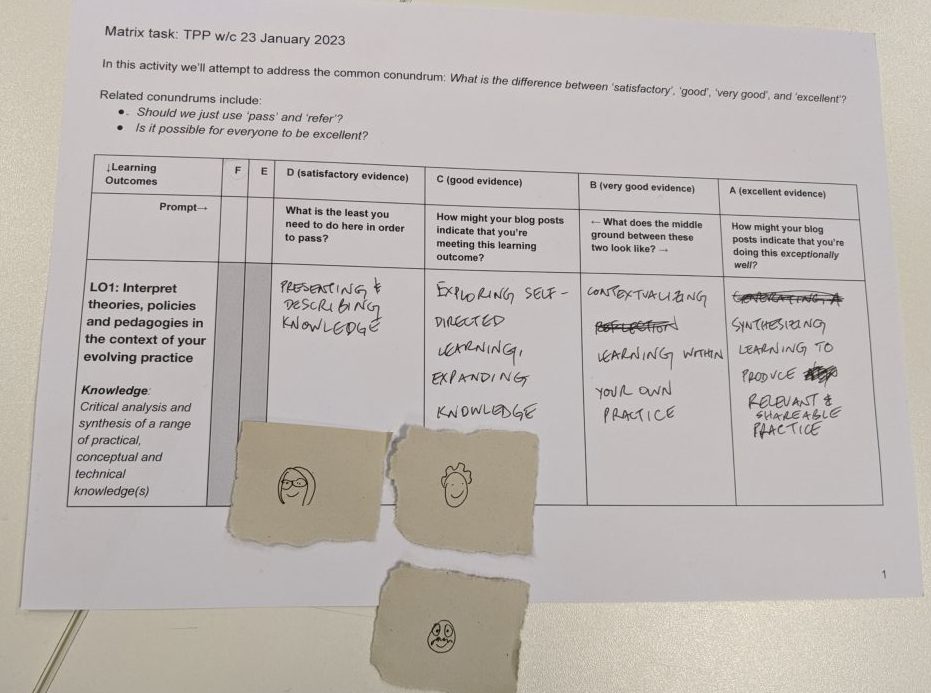The pressure of being excellent riddles us in all aspects of our lives. In education, teachers feel pressure to be equipped with knowledge from every aspect of their subject matter; students feel that they must display only the best parts of themselves. What happens when we remove the veil?
‘…if you’re not prepared to be wrong, you will never come up with anything original…by the time they get to be adults, most kids have lost that capacity. They have become frightened of being wrong.’ Robinson, K (2006)
Robinson, K. (2006) Do schools kill creativity?
Students that are unsure of their own judgment and/or seek perfection often ask the question “Does this look right?” When students get it right, it brings comfort and a sense of accomplishment. In turn, it can also create dependencies, removing students from their own sense of judgement. When students get it wrong, it creates a sense of fear, often resulting in the fixation of correcting small unnecessary details.
I recently supported a student who had been struggling with her 3D garment simulation. The garment was bunched up and looked nothing like the physical garment. After much experimentation, from the myself and the student, I finally suggested leaving the work in an unfinished state. The student was shocked and proceeded to explain how they could not submit it in that state. This was a dilemma I had faced with many students and struggled to reconcile. On this occasion, I found the right words to put the student at ease. I responded, “It’s ok to make mistakes. If you show the mistake, evaluate it and present how you attempted to fixed it, it may actually improve your grade.” There was an instant sense of relief from the student, followed by surprise. In that moment I realised that we rarely prepare students for the pitfalls they may face and how to manage and evidence this.
“…to set the student off in pursuit of an un-named quarry may be merely wasteful, but to grade him (sic) on whether he catches it or not is positively mischievous”
Rowntree, D (1987) Assessing students: How shall we know them
During an exercise, in which we were asked to rewrite 4 level descriptors, an interesting thought came up. Does a student with a “bad” concept who evidences and evaluates mistakes grade higher or level to, a student with amazing processes and outcomes but little evaluation? In my opinion, evaluation and skill/natural talent should be rewarded equally, as they both evidence imagination and judgement skills. The very same things Davies, A (2012) says is the “cornerstone of creative thinking” and “we expect all art and design students to develop it as they progress in their study”. Although this approach to assessing may not extend itself to the working environment, it creates a space for students to experiment, make mistakes and develop self evaluation and lateral thinking skills.
Could rewarding mistakes be the key piece needed to improve student progression?
The results of these conversations can be seen in the image below.



One response to “Do we all need to be excellent?”
Hi Kemi! Your post really resonates with my experiences of the fear that students feel when faced with having their work assessed. You write so eloquently on how to relieve that pressure. Perhaps you can link it to the idea of Compassionate Assessment that we were introduced to through Neil Currant’s seminar. I love how you included such relevant quotes and personal reflections on your teaching practice.